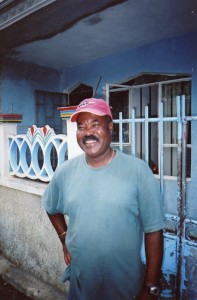The primacy of human contact over fixed abstract systems is a widespread traditional African pattern.
Akan societies in Ghana tell stories about a popular cultural hero called Ananse Kokrufu.
He was a spider, and he felt that people had lost respect for established wisdom. He thus gathered it, packed it into a gourd, and carried it up a tree for safe keeping.
But his son mocked his unrealistic labor. Ananse got angry and threw the gourd down. It shattered and the wisdom scattered all over the ground.
Many people brought their own gourds and picked up whatever they could. But no single person could gather the majority of it.
This tale illustrates a common traditional African approach to thought and reality. Wisdom is too diverse to be corralled into one system of concepts, or one person’s perspective. It has too many centers to be jammed into one overarching view.
Wisdom is distributed piecemeal, and different people have different parts of the whole. The community is the locus of truth. Wisdom emerges when people meet, discuss, tell stories, recite proverbs, dance, conduct rituals, and create art.
This view of reality as interpersonal and dynamic, rather than entirely based on abstract concepts, is usually under-appreciated by people from cultures that have seen writing and monumental architecture as hallmarks of civilization.
But Africa can boast more cultural diversity than any other continent. Try to unify it into a monolithic system, and you miss its richness. You have to enjoy it on its terms. You can only immerse yourself in it, and participate as an insider. You’ll then discover some of the most beautiful networks of concepts any cultures have devised. We’ll explore some of them in future posts.


Comments on this entry are closed.